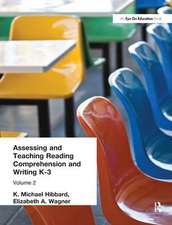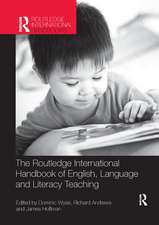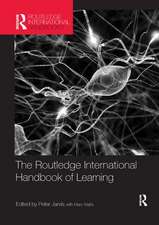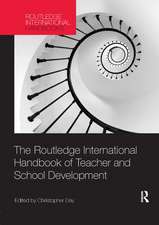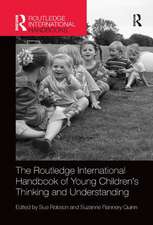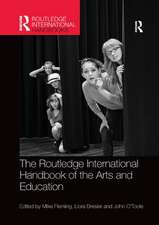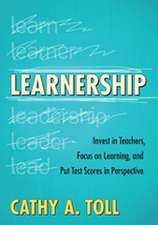Assessing and Teaching Reading Composition and Writing, 3-5, Vol. 4
Autor K. Michael Hibbard, Elizabeth Wagneren Limba Engleză Hardback – 12 iul 2017
Preț: 625.03 lei
Preț vechi: 876.71 lei
-29% Nou
Puncte Express: 938
Preț estimativ în valută:
119.64€ • 129.100$ • 100.56£
119.64€ • 129.100$ • 100.56£
Carte tipărită la comandă
Livrare economică 21 aprilie-05 mai
Preluare comenzi: 021 569.72.76
Specificații
ISBN-13: 9781138439757
ISBN-10: 1138439754
Pagini: 208
Dimensiuni: 210 x 280 mm
Greutate: 0.45 kg
Ediția:1
Editura: Taylor & Francis
Colecția Routledge
Locul publicării:Oxford, United Kingdom
ISBN-10: 1138439754
Pagini: 208
Dimensiuni: 210 x 280 mm
Greutate: 0.45 kg
Ediția:1
Editura: Taylor & Francis
Colecția Routledge
Locul publicării:Oxford, United Kingdom
Public țintă
Professional Practice & DevelopmentNotă biografică
Hibbard, K. Michael; Wagner, Elizabeth
Cuprins
Chapter 1 A Roadmap to This Book; Chapter 2 Teaching and Assessing Reading Comprehension through Retelling; Chapter 3 Assessment Tools for Writing; Chapter 4 The Process of Writing and the Four Levels of Comprehension; Chapter 5 Comprehension of Biographies, Fables, Fairy Tales, Folktales, and Myths through Retelling and Writing; Chapter 6 Comprehension of Nonfiction Texts; Chapter 7 Connecting Standards and Themes to Performance Tasks; Chapter 8 Research Projects for Fiction and Nonfiction;
Descriere
The supposed rationality of the urban planning of the Modern Movement encompassed a variety of attitudes towards history, technology and culture, from the vision of Berlin as an American metropolis, through the dispute between the urbanists and disurbanists in the Soviet Union to the technocratic and austere vision of Le Corbusier. After the Second World War, architects attempted to reconcile these utopian visions to the practical problems of constructing - or reconstructing - urban environments, from Piero Bottoni at the Quartiere Trienale 8 in Milan in 1951 to Lucio Costa at Bras'lia in 1957. In the 1970s, the collapse of Modernism brought about universial condemnation of Modern urbanism; urban planning,and rationality itself, were thrown into doubt. However, such a wholesale condemnation hides the complex realities underlying these Modern cities. The contributors define some of the theoretical foundations of Modern urban planning, and reassess the successes and the failures of the built results. The book ends with contrasting views of the inheritance of Modern urbanism in the United States and the Netherlands.

